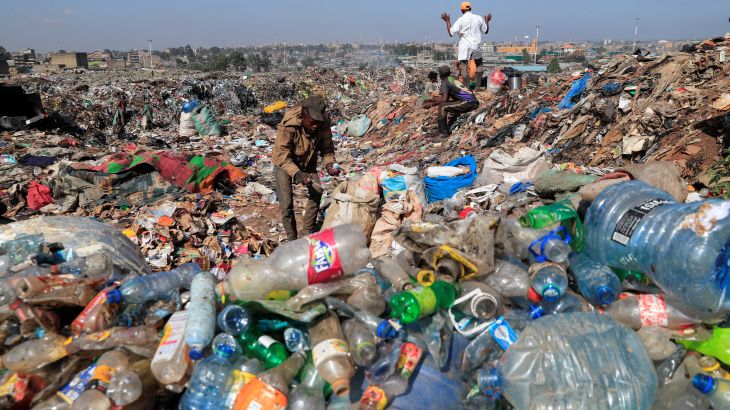
Plastics treaty: Will the developing world be heard?
On Wednesday, May 24 at 19:30 GMT:
What will it take to make a Global Plastics Treaty that is effective for all? NGOs are taking issue with the UN for giving a limited presence to key voices, particularly those from developing nations, at upcoming negotiations for a treaty on ending plastic pollution.
Environmentalists say it is vital for people in developing countries – places that are often the recipient of plastic waste from rich nations – to let negotiators know their firsthand experiences with the issue.
Marginalised populations on the frontlines of the plastics crisis are subject to the negative impacts of plastics at all stages: From the extraction of fossil fuels to manufacturing, consumption and disposal. Poorer communities are also disproportionately affected when it comes to environmental contamination from improper waste management, dumping or burning of plastic garbage.
Last year, 193 countries agreed to end plastic pollution, with the goal of creating a legally binding Global Plastics Treaty by 2024. The UN Environment Programme will host the second round of negotiations starting May 29 in Paris. Released ahead of the event, a new UN report estimates cutting plastic pollution by 80% over the next two decades would prevent more than $3 trillion in damages to global health, the environment and climate.
In this episode of The Stream, we’ll look at proposed solutions and what’s at stake in the global plastics crisis.
On this episode of The Stream, we speak with:
Andres Del Castillo, @andresdelcas
Senior Attorney, CIEL
Shilpi Chhotray, @ShilpiChhotray
Co-founder and Executive Director, People Over Plastic
Tiwonge Mzumara-Gawa, @Tearfund
Partner and campaigner, Tearfund Campaign